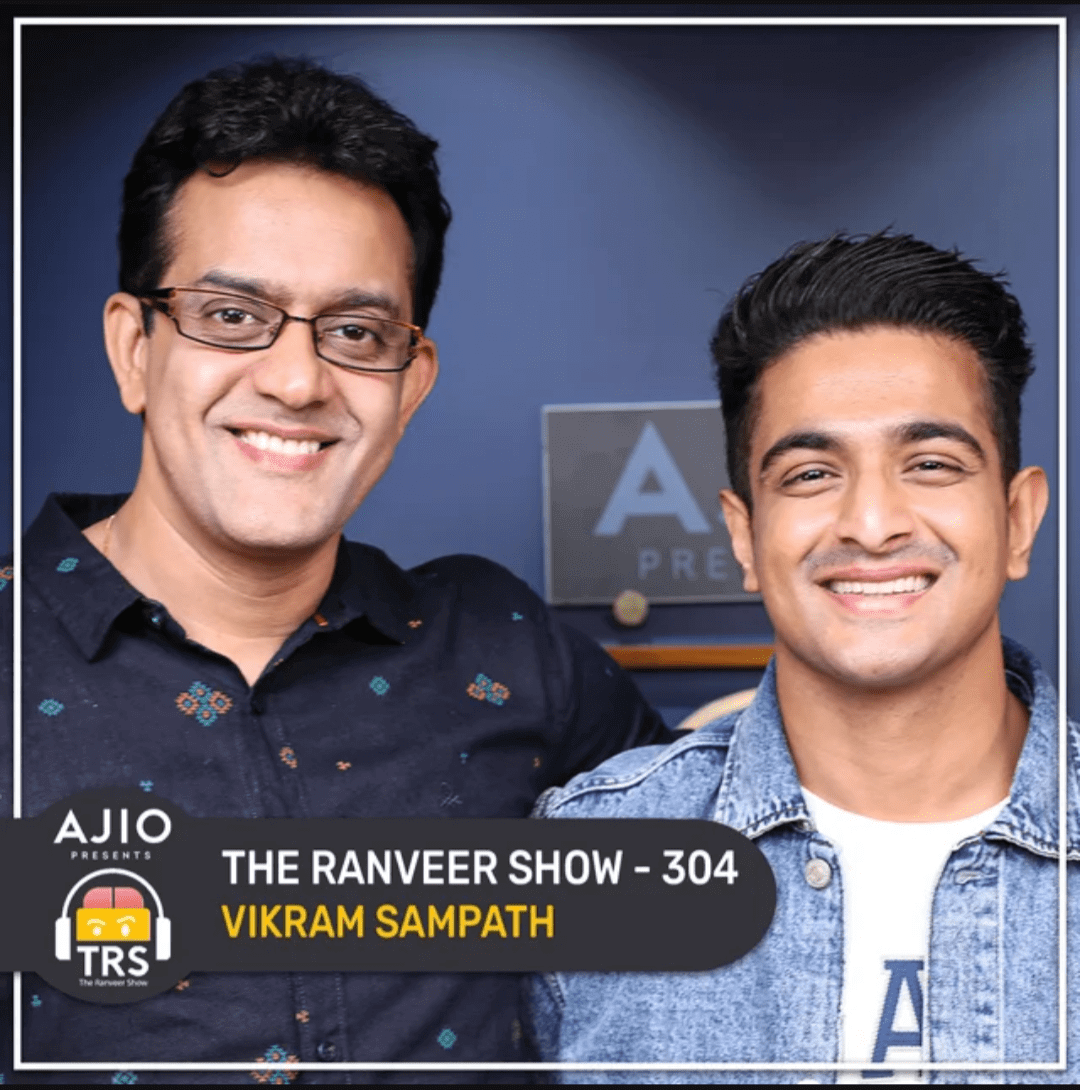Dr. Vikram Sampath, a renowned historian based in Bangalore, is highly regarded for his extensive work in the realm of history.
With a Ph.D. in History, he has authored several acclaimed books delving into various aspects of Indian history, including the Indian Freedom Movement and the life of Veer Savarkar. Dr. Sampath’s notable achievements include being elected as a Fellow of the esteemed Royal Historical Society of the UK, receiving the Sahitya Akademi’s inaugural Yuva Puraskar for English literature, and being honored with the ARSC Award for Excellence in Historical Research in New York.
Additionally, he has made significant contributions to preserving vintage gramophone recordings through the establishment of the Archive of Indian Music.
In recent times, there has been a renewed interest among Indians in uncovering the untold aspects of their country’s history. The stories taught in schools often miss out on important details, leading to a distorted understanding of the past.We aim to shed light on the importance of exploring India’s history, questioning established narratives, and embracing a more inclusive and accurate understanding of our shared heritage.
Unveiling the Complexity of India’s Freedom Struggle
Understanding India’s Struggle for Freedom:
India’s fight for freedom was a complex journey with multiple individuals and movements playing significant roles. While Mahatma Gandhi and the Quit India Movement of 1942 are often highlighted, it is important to acknowledge the contributions of other movements such as non-cooperation and civil disobedience. Leaders like Subhash Chandra Bose also played a crucial role in India’s fight for independence.
Examining the Quit India Movement:
The Quit India Movement, led by Mahatma Gandhi, marked a significant milestone in India’s struggle for freedom. Launched in 1942, it aimed to secure complete independence from British rule. However, the movement faced challenges as it lacked a clear plan of action, and the British responded with force. The movement turned violent and was brutally crushed within a short period. It is crucial to recognize that India’s freedom was not solely achieved through one movement or individual, but through the collective efforts of countless individuals and movements.
Challenging Narratives and Rediscovering India’s Rich Heritage
Celebrating India’s Diverse Historical Narrative:
India’s history is a tapestry of diverse cultures, kingdoms, and contributions to human knowledge. Unfortunately, traditional narratives often overlook these aspects, primarily focusing on Delhi-centric stories. It is essential to bring forth the stories of regional kingdoms such as the Cholas, Kadambas, Gangas, and others, which have played a significant role in shaping India’s rich heritage. By celebrating this diverse historical narrative, we can foster unity and integration.
Questioning Popular Culture and Stereotypes:
Popular culture, including movies, has perpetuated stereotypes that distort our understanding of history. It is crucial to challenge these narratives and create a more inclusive representation of our past. By acknowledging the contributions of various cultures and regions, we can paint a more accurate and comprehensive picture of India’s history.
Bridging the Gap Between Ancient and Modern History:
To truly appreciate India’s history, we must bridge the gap between ancient and modern times. Exploring ancient knowledge systems such as mathematics, chemistry, metallurgy, Ayurveda, and yoga allows us to understand the immense contributions India has made to various fields. By recognizing and appreciating these contributions, we can gain a deeper sense of pride in our shared heritage.
Critically Evaluating History: Discovering the Truth:
Studying history requires a critical approach, considering the biases inherent in historical sources. Historians must carefully evaluate multiple accounts, disregarding exaggerations and seeking a version of truth that lies in the middle. While teaching history to young students, it is important to provide a simplified yet comprehensive overview that ignites curiosity and lays the foundation for a deeper understanding in the future.
Embracing Conversations and Diverse Perspectives:
Podcasts and long-form conversations offer a platform to delve into historical topics with depth and context. These conversations allow historians like Dr. Vikram Sampath to share lesser-known aspects of history, challenge established narratives, and expand our understanding of the past. Engaging in such conversations helps us unlock the true richness of our history.
It is high time we embrace a more inclusive and accurate understanding of India’s history.
https://beerbiceps.com/lost-history-zoroastrianism-apocalyptic-events-asian-history-dr-ramiyar/



Pingback: Taliban In Afghanistan, & Geopolitical Predictions – Abhijit Iyer-Mitra – BeerBiceps
Pingback: Experience Of Living in Korea and China – BeerBiceps